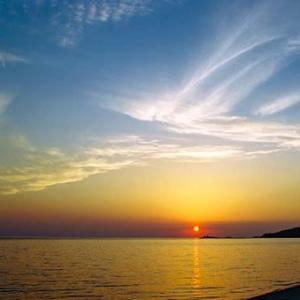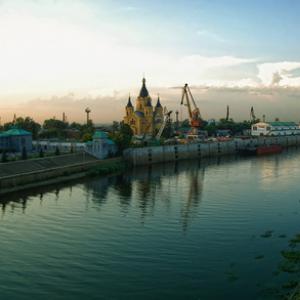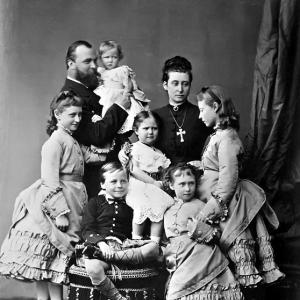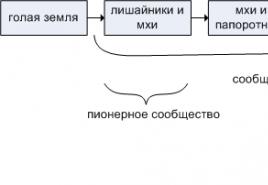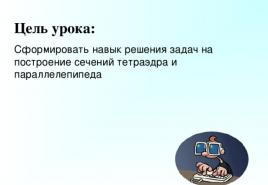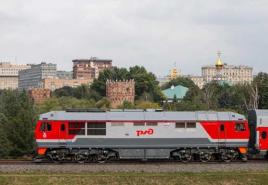What subjects are in 1. Optional subjects at school. class: what subjects are studied
The transition of children from primary to secondary school is stressful in itself, not only for students. Parents sometimes experience considerable stress from the new educational level. In addition, subjects in 5th grade in 2018-2019 may differ in different schools, which does not always meet the requirements of parents for education. There are also mothers who want to minimize the number of disciplines, so they may be unpleasantly surprised by the number of new subjects the child has. However, both of them should know exactly what children are supposed to take in 5th grade, and for which subjects the time has not yet come.
Basic familiar set of disciplines
Many parents remember that the range of subjects in 5th grade has increased, but not everyone is able to reproduce their list. Although “Foreign Language” comes to mind for most, this subject was definitely one of the new disciplines at the beginning of the secondary level 15 years ago. Now second-graders are being introduced to it, but soon children will expect innovations in this matter.
Attention! Some schools will begin introducing a second foreign language starting in 5th grade starting in 2018-2019. Those schoolchildren who have already entered the 6th year of study will continue to study one foreign language, and fifth-graders will also receive a second language.
In addition, many are unable to remember most of the new subjects, although there were not very many disciplines. Moreover, earlier the “friendliness” of new lessons was more pronounced, i.e. disciplines were introduced everywhere. Now the situation is somewhat different - the basic set of lessons remains unshakable. In a number of subjects, variability appeared that is not typical for every school. It’s just that somewhere they continue to preserve the plan for introducing new lessons, proven by many years of practice.
Any Russian school, without exception, must have the following disciplines in 5th grade:
- Literature.
- Technology.
- Mathematics.
- Russian language.
- Foreign language.
- Musical culture.
- Physical Culture.
In general, parents may have questions about this set of lessons only because of 2 disciplines. We are talking about “Technology” and “Foreign Language”. With the last subject, not everything is clear, you just need to remember one thing - Foreign Language will continue until the end of school, regardless of whether it is studied from the second grade or from the fifth. With “Technology” everything is a little more confusing, but this is the same “Labor” known to parents from their school years. Although now this discipline is variable not only in its name, but also in its content, like a number of other school subjects for study in the 5th grade.
Variative and optional disciplines
 Among the variable disciplines, the most frequently identified subjects are “The Environment,” “Natural History,” “Natural Science,” and even “Biology.” Much depends on the specific curriculum and the sequence of presentation of similar material, but in any case, one of these subjects will be on the schedule. In most cases, this is either “Natural history” or “The world around us”.
Among the variable disciplines, the most frequently identified subjects are “The Environment,” “Natural History,” “Natural Science,” and even “Biology.” Much depends on the specific curriculum and the sequence of presentation of similar material, but in any case, one of these subjects will be on the schedule. In most cases, this is either “Natural history” or “The world around us”.
The relatively new subject “Ethics and Foundations of Religious Cultures” will also be variable. This discipline itself can be included in 1 or 2 years of teaching. That is, this subject can only be taught in the 4th grade or only begin in the fifth, although sometimes it is taught in both years.
Don’t forget about computer science - this is one of the most variable subjects; it “walks” across the school grid on the scale of several classes. Moreover, sometimes this discipline is called differently - “ICT”. In addition, sometimes the time gap between its introduction can reach 2 years - in a number of schools, “Informatics” appears only in the 7th grade. The situation is similar with “Civics” and “Social Studies”. These disciplines can be a replacement for part of the subject “Local History”, dealing with issues of civil relations in a particular region. Also, some schoolchildren may simply have a new subject related to the activities of society.
In addition, there are elective subjects:
- Rhetoric and oratory.
- General physical training and various sports disciplines.
- Additional classes for the development of logic.
- Rhythmic, dance and creative activities.
This is just a small list of additional disciplines and electives. Much depends on the location of a particular educational institution, the availability of the necessary teachers, the capabilities of the school, and even on its leadership. At the same time, there are disciplines that are practically mandatory for all students in the 5th grade and are not taught in elementary school.
New subjects in secondary education and in the education system as a whole
Fifth-graders change their status—not only do they move to a higher year of study, but they also change from elementary to high school. This, by default, requires expanding the requirements in terms of increasing the disciplines studied. For schoolchildren, two new subjects can be introduced at the beginning of the year: geography and history.
 Sometimes they are part of a discipline within a block of lessons on studying their own region, or “Geography” can be taught on the scale of the “World around us”. These are “new subjects”, but they are such only for fifth-graders; next year “History” and “Geography” will become familiar disciplines, although other previously unknown lessons will also appear.
Sometimes they are part of a discipline within a block of lessons on studying their own region, or “Geography” can be taught on the scale of the “World around us”. These are “new subjects”, but they are such only for fifth-graders; next year “History” and “Geography” will become familiar disciplines, although other previously unknown lessons will also appear.
While robotics, 3D modeling and programming are included in the scope of other subjects. The first 2 relate to “Technology”, and the last one is included in the study of “Computer Science” and “ICT”. So far there are no plans to separate them into separate disciplines, but you need to understand that the very fact of their presence seriously changes the school subject in a more innovative direction, which many parents know almost nothing about. In fact, the discipline is old, known to parents, but its content will change seriously.
The Ministry of Education and Science monitors the start of secondary education. Officials formulate minimum requirements for studying compulsory disciplines and recommendations for teaching elective, variable and auxiliary subjects.
Despite persistent attempts to standardize schooling, the very nature of education is subject to constant change and innovation. The difference in real capabilities across the region does not allow all schools to simultaneously introduce the most modern trends or switch to new teaching methods. If we add to this the certain powers of the school leadership to change the schedule due to variable parts, then we get a different picture of the subjects taught. As a result, even in one region or city, there may be a situation where there is a complete absence of the disciplines “Nature Studies” or “Art” among the subjects in the 5th grade in 2018-2019 in some schools, while in others “The Environment”, “MHC”, etc. will not be taught. . P.
It is clear that all schools will have a basic set of subjects, and you should find out about other disciplines in a specific educational institution.
School is a place where a person receives a knowledge base that will help him find his occupation in life and calling. The list of subjects at school is very diverse, and this helps the student decide on the direction in the exact or
The first place learning begins is the Russian language, reading and mathematics. The main task in the first months is to accustom the child to perseverance and patience, diligence and accuracy, and the desire to learn something new.
In addition to the main subjects, they also include disciplines such as drawing, technology, the environment, singing and physical education, so that the child expands his horizons and so can find his hobby.
From grades 4-5, a foreign language, religious culture and secular ethics are added, which expands the boundaries and opens up new directions.
Russian language and mathematics lessons
Russian language and mathematics are the main subjects that start from the first and end in the 11th grade. These two subjects are considered the basis of all basics, because without them it is difficult to write or calculate anything, and in life it will be difficult to get by without studying these subjects. A person will only be able to speak, but his speech will be illiterate.

Unlike the Russian language, which is studied throughout the school years, mathematics is divided into 2 areas in the 7th grade: algebra and geometry.
In elementary school, the student learns basic skills: addition, subtraction, multiplication and division, operations with fractional numbers, and only then algebra appears with the study of coordinate systems and systems of equations, as well as geometry, where vectors, stereometry, and planimetry are studied.
Lessons in biology, geography, history and computer science
The list of subjects at school does not end with the basic subjects. Sciences such as biology, chemistry, physics, history and social studies or geography lessons, where you can learn about the whole planet, can be very interesting and fascinating: in classes, children study types of soils, minerals, climate and population of the globe, continents, countries and much more.
Thanks to such subjects, the student understands more and more what he would like to do after receiving basic education, where he would like to go to study after school. Russian language and mathematics identify humanists and people with a precise mindset, and additional compulsory subjects help to find direction.

For example, if a child fell in love with “The World Around us”, then biology and chemistry, then perhaps he will want to become a doctor or go to study to become a pharmacist in order to create new medicines.
What subjects are missing at school?
All subjects that are taught in school today, from Russian language and literature to geometry lessons and a second foreign language, should form an educated person who will find his way in life. But some scientists argue that there should be an additional list of subjects at school that will definitely be useful in life:
- Applied Mechanics - Many children find subjects like algebra and geometry very boring. But if all the rules and new topics were put into practice, surely more people would become interested in the exact sciences.
- Latin is the basis of the Romance group. Thanks to your knowledge of Latin, you can easily learn not only English, but also French, Italian, Spanish and Portuguese.
- The history of philosophy is a complex discipline that may not be understood even after school. However, such a subject will teach you to think more comprehensively, systematically and will help you gain some ideas that may be useful in life.
In addition to these subjects, you can also add the study of martial arts, film production, familiarity with areas of religion, and music.
The new education law was adopted at the end of last year and came into force on September 1, 2013. The law introduced some changes to the education system and consolidated several innovations. Including, According to the new law on education, compulsory subjects in school have changed.
The changes affected preschool, secondary (complete), primary vocational, higher and family education. Today, parents in kindergartens pay 20 percent of the total cost of maintaining their children in a preschool institution. According to the new law, educational services will be provided free of charge, and additional ones will be paid. The list of paid services includes child care and supervision, food, communication costs, property, and so on.
The most serious concerns among parents are the provisions regarding the new state education standards. These standards are expected for each educational level. New federal education standards in primary grades are already in effect, and from 2013 they will be launched in secondary education. As for the Unified State Exam, what will be new is that there will be another compulsory subject - a foreign language. All high school students will be required to take it starting in 2014.
It is very important that legislators turned their attention to the non-state sector in education. Now state and non-state institutions have become equal in rights, which allows us to hope for the development of private initiative in education. The law also allows home education.
In accordance with the new law on education, the concept of education in high school is specialized education. Two-thirds of the plan will be compulsory subjects. Their students must choose from eight subject areas (mathematics and computer science, philology and foreign language, social sciences, natural sciences, art, life safety and physical education, technology). From each subject area, the student must choose at least one academic discipline. There should be 9-10 such items in total. The student will choose the rest of the academic disciplines based on their educational profile.
Education experts believe that thanks to the new system, the burden on children should decrease. Now schoolchildren will have the opportunity to study those subjects that they do not particularly need, only at a basic level. Some parents, in turn, are confident that the level of schoolchildren’s training will also decrease. A particularly catastrophic situation can be considered when a high school student at school is engaged in in-depth study of physics and mathematics, and ultimately decides to enroll in the Faculty of Humanities. In this case, basic knowledge of humanitarian subjects will not provide an opportunity to enter a university, and parents will be forced to hire tutors.
The communists, led by the leader of the Communist Party of the Russian Federation Gennady Zyuganov, submitted for consideration draft amendments to the basic law “On Education”, according to which the law should stipulate a unified curriculum for all subjects of the Russian Federation, containing a list of compulsory subjects, courses and disciplines, as well as their maximum volume. The communists propose sixteen subjects as compulsory. According to the Communists, compulsory subjects in school according to the new law on education should be the Russian language, literature, mathematics, computer science, foreign language, social studies, history, geography, physics, fundamentals of natural science, biology, chemistry, technology, art, life safety and physical education. The authors are confident that the innovation will solve the problem of “inconsistency in curricula.”
From September 1, 2013, the conditions for admission to the university have also changed. Now only winners of All-Russian school Olympiads, members of Russian national teams taking part in international Olympiads in general education subjects, champions or prize-winners of Olympic and Paralympic games will be able to enter the university without exams. Disabled people are enrolled in universities without competition, having passed entrance examinations. The remaining categories of beneficiaries have the right to take advantage of two support measures: take preparatory courses at an educational institution for free and receive an advantage in enrollment with an equal number of points.
Parents are very concerned about the question: whether schooling will become paid, because the new law allows for the development of paid services at school. It is necessary to understand that the state provides a guarantee of accessible and high-quality free education within the framework of the state standard. The standard gives the student extensive knowledge that allows him to enter a higher education institution. At the same time, the new law on education also envisages an increase in paid educational services in schools. Parents will have to pay for knowledge that goes beyond educational standards. It is quite easy to check whether this or that knowledge is included in the educational standard. As for the cost of the service, it is determined by the school, and an economically justified calculation of this cost, together with a draft agreement for the service, is posted on the institution’s website.
Drawing lessons were canceled in schools 5-6 years ago. But elsewhere they teach this subject as an elective or instead of several hours of technology per week in high school.
Disputes about the necessity and uselessness of drawing do not subside even today, when this subject has already been excluded from the general school curriculum. Some people think that drawing is an absolutely useless subject. Others, on the contrary, argue that without the skills of “drawing” in high school, and even more so in a technical university, there is nowhere.
“I am a former drawing teacher. “Former” sounds very sad. I love my subject, but for the last three years I have been forced to teach it only as an elective course,” he writes on the social network of educators teacher Natalya Zaitseva. — Is it really possible to give complete material on this complex and, in my opinion, very interesting subject in 17 hours? And how do the children who do not attend my course suffer, and then in the 10th grade are faced with stereometry and cannot construct an elementary geometric body. It is not clear why it was canceled? But the basics of marketing, the basics of business communication have been introduced... Apparently, the country really doesn’t need engineers. Sadly".
In the professional network, many teachers express regret about the cancellation of drawing and hope that the subject will eventually be returned to the general school curriculum.
Logics
Another subject from the Soviet past that does not fit into the concept of modern education is logic.
Logic was taught in schools as a compulsory subject in the 1950s. The Central Committee of the All-Union Communist Party of Bolsheviks, in its resolution “On the teaching of logic and psychology in secondary schools” dated December 3, 1946, declared it unacceptable that these subjects were not studied in secondary schools. At the same time, logic was in demand in secondary educational institutions before. Only after the events of the Great October Revolution was this subject banned from study not only in schools, but also in universities.
However, after the end of the war, on behalf of Stalin, discipline was returned to the curriculum. But as soon as the “leader” died, the subject was again excluded from the school curriculum. Under Khrushchev, logic was completely banned, citing concern for students, so as not to overload students.
Currently, logic is not a compulsory subject in school, so each educational institution decides independently whether to include it in the curriculum or not.
Astronomy
The study of the movement of celestial bodies for schoolchildren was canceled in 2008. Meanwhile, astronomy has been included in the compulsory school science course since the time Peter I. Before the revolution, over 40 different textbooks on this discipline were published in Russia. Its gradual erosion in the school curriculum began in 1993 - the astronomy course did not fit into the design of the main curriculum.
Today, astronomy is not formally prohibited in schools. It’s just that science officials cannot find a place for it in the structure of modern educational standards. What does it have more of - natural history, physics or chemistry? Or will the discipline be better perceived as a separate subject? Scientists and teachers are still arguing.
basic military training
Basic military training was not indicated as an academic subject in the matriculation certificate. As a rule, it was carried out under the leadership of WWII participants or armed forces officers sent to the reserve.
Students in grades 8-10 were taught drill, fire and tactical training, and were told about the nature and characteristics of the domestic armed forces. They taught how to disassemble and assemble a machine gun, use a hand grenade, a gas mask, dosimeters, taught the basics of first aid, etc.
Today, there is no such subject left even as an elective in Russian schools (with the exception of specialized educational institutions). Unlike some states of the former USSR, where pre-conscription training of youth in schools is still carried out.
Calligraphy
Calligraphy is a subject inherited by the Soviet educational school from Tsarist Russia. It was included in the schedule as “penmanship”. This discipline required perseverance and high concentration from primary school students. Schoolchildren were taught not only to write cleanly, but also to hold the pen correctly so that the letters were neat and beautiful.
Today, the role of calligraphy is given to numerous copybooks. At the same time, no one at school pays much attention to how primary schoolchildren hold their pens.
Ethics and psychology of family life
There was also such experience in the Russian general education program. Students studied the place of the family in different cultures, discussed the role of the family in the education of the individual, and the psychology of relationships. Sex education issues were not included in the content of this course.
The subject was informational and educational in nature - the final grade for it was not included in the certificate.
Today Commissioner for Children's Rights in the Russian Federation Pavel Astakhov considers it possible to return to teaching the discipline “Ethics and Psychology of Family Life” in schools. The Ombudsman even sent a corresponding letter to the Minister of Science and Education.
Constitution of the USSR
The Constitution of the USSR was studied in the 7th grade. Schoolchildren were told about the state structure of the country, the role of the leading party, as well as the basic rights and responsibilities of Soviet citizens. The subject was excluded from the general program in 1958. But physical education and labor were added to the schedule.
And, if there are still debates about other subjects about the possibility of returning them to the curriculum, then there is simply no need to study the Constitution of the USSR. Today Russia is a different state with a new Constitution and a different government structure. These issues are already being studied as part of the subject “Social Studies,” which is included in the compulsory school curriculum.
God's law
Until 1917, Russia had Rules on parochial schools. They stipulated who should carry out the training and declared the “Orthodox teaching of the faith.”
On August 1, 1909, in St. Petersburg, at the All-Russian Congress of Teachers of the Law of God in secular educational institutions, it was decided to use a fresh teaching methodology. Namely, try to bring the discipline closer to the modern way of life. Only a few years later, in September 1917, the Local Council adopted a resolution “On the teaching of the Law of God in school,” which noted that in all public and private schools where there are Orthodox students, the Law of God should become a compulsory lesson. At the same time, the Law of God was considered not only as an educational subject, but primarily as an educational one. The students studied the history of the Old and New Testaments, the worship of the Christian Orthodox Church, and the catechism.
With the coming to power of the Bolsheviks, the Law of God disappeared from the school curriculum. Only in 1991, religious education and training in Sunday schools and Orthodox gymnasiums was officially revived in Russia. Today, its simplified version is taught optionally, without assessment of knowledge, in the 4th grade of a general education school when choosing the discipline “Fundamentals of Orthodox Culture.”
Latin
In Russia, starting from the reign of Peter I and up to the October Revolution, Latin occupied one of the places of honor in the education program of classical gymnasiums. Only high school graduates were enrolled in higher education institutions.
Today, the Latin language is studied only in specialized lyceums or gymnasiums, but is not included in the general school curriculum. Unlike pre-revolutionary education, such Latin is of a purely “applied nature” for those who decide to connect their lives with medicine: specialized terminology, names of diseases and pathological conditions, and rules for writing prescriptions are studied.
At the same time, an interesting fact is that practice shows that those who speak and use Latin live to an advanced age and extremely rarely fall into insanity. The thing is that they exercise their memory all their lives and memorize large amounts of text.
Philosophical propaedeutics
This exotic item, perhaps with its name alone, can shock modern students and their parents. Meanwhile, philosophical propaedeutics as an educational discipline has a long history of development. It means nothing more than an introduction to philosophy (from the Greek propaidéuō - “pre-teach”). Philosophical propaedeutics was taught in high school in pre-revolutionary Russia. At the lectures, students were taught the basics of philosophy, as well as logic and pedagogy, thereby forming in future citizens the moral foundations of their thoughts and actions.
Propaedeutics was also preserved in the educational system of the USSR, although only as courses and in the light of exclusively Marxist-Leninist ideology.
Natural history (natural history)
Natural history or science—the study of the natural world—was removed from the school curriculum in 1877. Only in 1901, a special commission on the organization of secondary school education in Russian schools adopted a provision according to which natural science and geography were to be studied in grades 1-3.
It was proposed to study nature in “dormitories”: forest, field, garden, meadow, park, river, and mainly on excursions. Over time, the course program underwent many changes - it was allocated both as a separate course “Natural History” and combined with lectures on other subjects. There is no science in the modern general school curriculum. It is present only as part of the curriculum “The World Around Us”, which is taught in primary school.
Shorthand
In an era when there was no talk of voice recorders, shorthand - the art of cursive writing - was quite widespread, so it was also offered to be studied in the royal gymnasiums. True, not as a compulsory course, but as an elective.
In 1906, due to the emergence of the first parliament in Russia, the demand for stenographers increased noticeably. High school students not only received useful skills, but also a chance to “fit into history.” One “minus” is that learning shorthand was a complex and long process, so it took at least six months to master the science at an acceptable level.
Academic subjects- training courses taught in schools in Russia and other post-Soviet countries.
The name is also used to designate academic disciplines in professional educational organizations and educational organizations of higher education.
Based on the results of each quarter (in grades 1-9), trimester (in some schools), half-years (10-11), and each academic year, students are given grades. After completing the school course of study in academic subjects, final exams are taken and, if the student wishes to continue studying, entrance exams to universities.
In the 9th and 11th grades, it is mandatory to take exams in the Russian language and mathematics in the forms of the OGE (for 9th grades) and the Unified State Exam (for 11th grades). In addition to the main subjects, a student can take any number of additional subjects. This is usually recommended for admission to a specialized class after the 9th grade and is necessary for admission to a university after the 11th grade. VPRs are written annually.
List of academic subjects studied at school (11-year education)
Mathematical
- Mathematics: 1-6 grades (in some schools up to 5 grades)
- Algebra
- Geometry: 7-11 grades (in some schools from 5th grade)
- Computer science (ICT): grades 7-11 (in some schools from grade 5) grades 1-4 preparatory, as an elective.
Social scientific
As part of history, from the 5th grade they study World History and the History of Russia (including the history of the USSR). Geography (sometimes called natural history) also begins in 5th grade.
- Story: 5-11 grades. In grades 3-4 (not in all schools) a propaedeutic course of “stories on the history of Russia” is studied, which examines only selected events in Russian history and (in the sense of maps of military operations) with significant details thrown out. In grade 5, the history of the Ancient World is studied, in grade 6, world history is studied - the History of the Middle Ages, and in the history of Russia - the period from ancient times to the 16th century. In the 7th-8th grades in world history, the history of modern times is studied, and in the history of Russia in the 7th grade the period of the 17th-18th centuries is studied, in the 8th grade - the history of the 19th century. In the 9th grade, they study world history - History of Modern Times, and in History of Russia - the history of the 21st centuries. In grades 10-11, the history of Russia and the world is studied in the form of a problem-analytic course, where students must work with a problem proposed by the authors of the textbook. In the 10th grade - from ancient times to the end of the 19th century, and in the 11th grade - the 20th century - the beginning of the 21st century.
- Geography: grades 5-11. In grades 5-6 - a general course in geography, in grades 7 - physical geography of the world, in grades 8-9 - geography of Russia (in grade 8 physical, and in grade 9 economic), in grades 10-11 - economic geography of the world.
Natural science
- Natural history: 5th grade (not everywhere)
- The world around us or the World around us: on electronic media: 1-4, 11, including for teachers.
- Geography: grades 5-11 (in some schools from grade 6)
- Biology: 5-11 grade
- Astronomy: 10th grade (in some schools in 11th grade)
- Physics: grades 7-11 (in some schools from grade 5)
- Chemistry: 8-11 grade (in some schools from 7th grade)
- Fundamentals of life safety (HS): grades 5-11 (in some schools from grade 8)
- Science: grades 5-11 (not everywhere). According to the 2004 GOS FC, in grades 10-11 it was possible to replace physics, chemistry and biology with this subject, if none of these subjects is studied at the profile level.
- Ecology: grades 5-11 (not everywhere). The mandatory minimum content of education includes a section on “Ecology,” although this subject is not included in the basic curriculum.
Teaching natural science subjects begins in the 1st grade (The world around us or the World around us), in the 5th grade this academic subject is called “ Natural history", according to FC GOS, it is possible to study the subject "Natural History" in the 6th grade by combining the subjects "Biology" and "Geography".
The study of chemistry usually begins in grades 7 or 8 (grades 7-9 - inorganic chemistry, at the end of grade 9 - organic chemistry, grade 10 - organic chemistry, grade 11 - general chemistry and repetition of inorganic chemistry)
Humanities
- History: (3)5-11 grades
- Civics: grades 5-11 (not everywhere)
- Social science: 7-11 grades. From 6th to 9th grade the basics of social studies are studied. The official name of the subject is “Social Studies (including Economics and Law)”; in grades 10-11 at the basic level, subjects can be studied either separately or as part of the subject “Social Studies”. At the profile level, subjects are studied separately from each other.
- Fundamentals of religious cultures and secular ethics: 4th grade. As an experiment - since 2010 in certain regions of the Russian Federation. Mandatory in all schools since 2012. Includes:
- "Fundamentals of Orthodox Culture"
- "Fundamentals of Islamic Culture"
- "Fundamentals of Buddhist Culture"
- "Fundamentals of Jewish culture"
- "Fundamentals of world religious cultures"
- Fundamentals of spiritual and moral cultures (SFMC) In 5th grade (not everywhere)
Philological
- Calligraphy: 1st grade (not everywhere) (usually as an elective)
- Literacy: 1st grade
- Native language: 1-11 grades. Only in republics with their own language or national areas or schools with an ethnocultural component. In these schools, in grades 1-2, it was allowed to “borrow” the hours allocated for mastering “technology” and “fine arts” on this subject, with the subsequent “return” of these hours.
- Russian language: 1-9 grade
- Reading: grades 1-4, in the Budgetary Educational Institution of the Russian Federation it is called “Literary reading”
- Literature: 5-11 grades
- Foreign language: grades 2-11 (in some schools from grade 1) (English, French, German, Spanish, others can be studied (Lithuanian, Ukrainian, Chinese, Polish, Ancient Greek, Hebrew, Estonian, Latin), but an exam in the form of the Unified State Exam is possible pass only in these languages)
In grade 1, students study reading (literature) and writing (native language or Russian), Russian language (spelling, punctuation, syntax, grammar, rhetoric). From grades 1 to 8, literature lessons cover various foreign authors and Russian literature (including modern), from grades 9 to 11 - Russian classical literature. Students write and write essays. Previously, essays were given two grades: 2 and 3 - in Russian language and literature. The work of writers and poets is studied - mainly Pushkin, Turgenev, Dostoevsky, Yesenin, Tvardovsky, and modern writers.
Many schools provide for the study of more than one foreign language. At the same time, in most schools it is compulsory (as a first or as a second) to study English. Among the languages for which the Unified State Exam is not provided, Chinese is the most widespread.
Previously, it was possible to distribute the hours allocated for mastering the academic subject “Foreign Language” in grades 2, 3, 4 into Russian language and literature. Now there is no such possibility.
Labor training
Physical training
- Physical education: grades 1-11. As a rule, it takes place in various places (gym, stadium, forest), where students play sports.
- Various sports, perhaps optional or as an elective, for example:
- Chess: 1-4 grades. (in some schools from 2nd grade)
- Volleyball: 4-6 grades.

